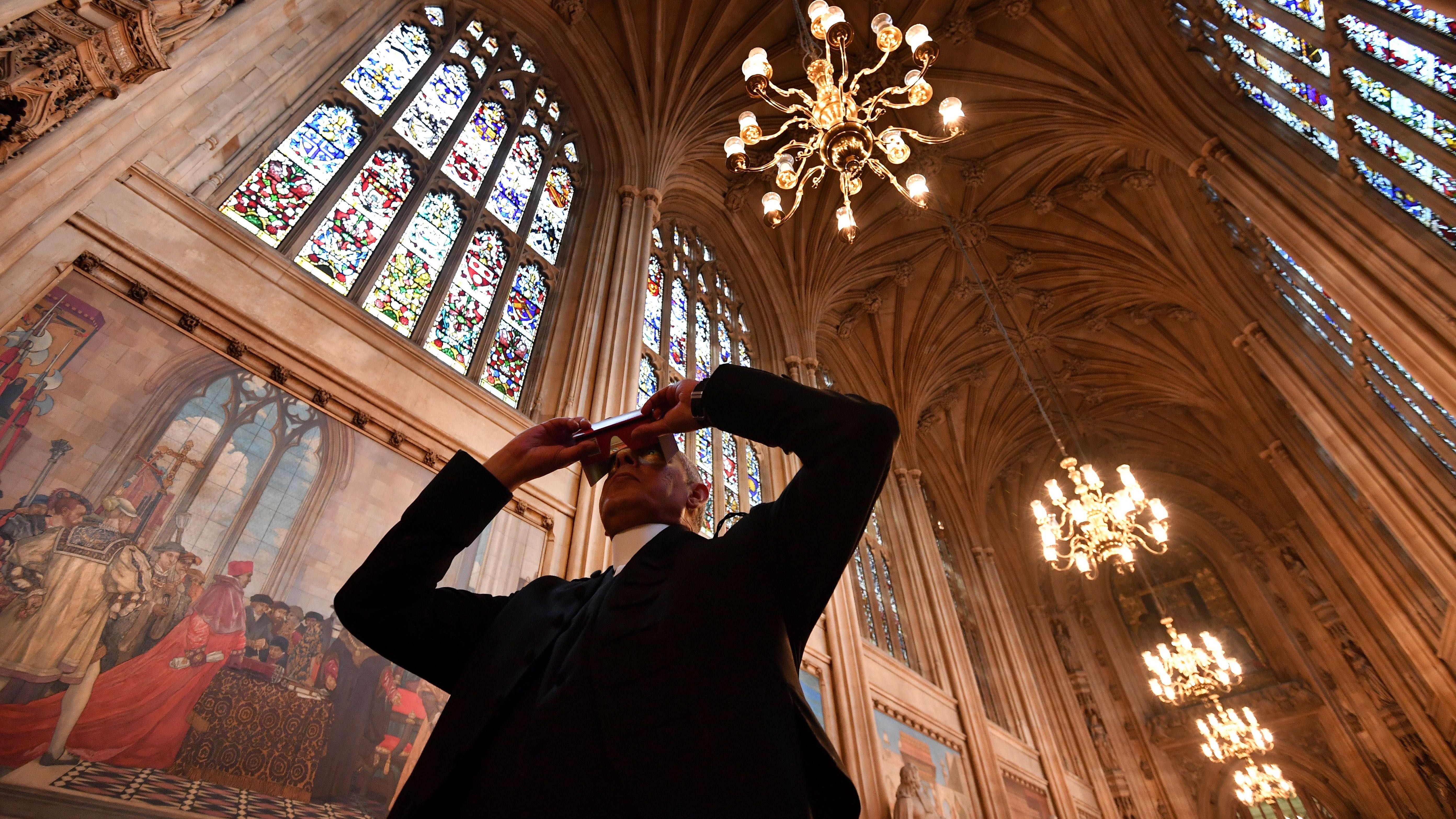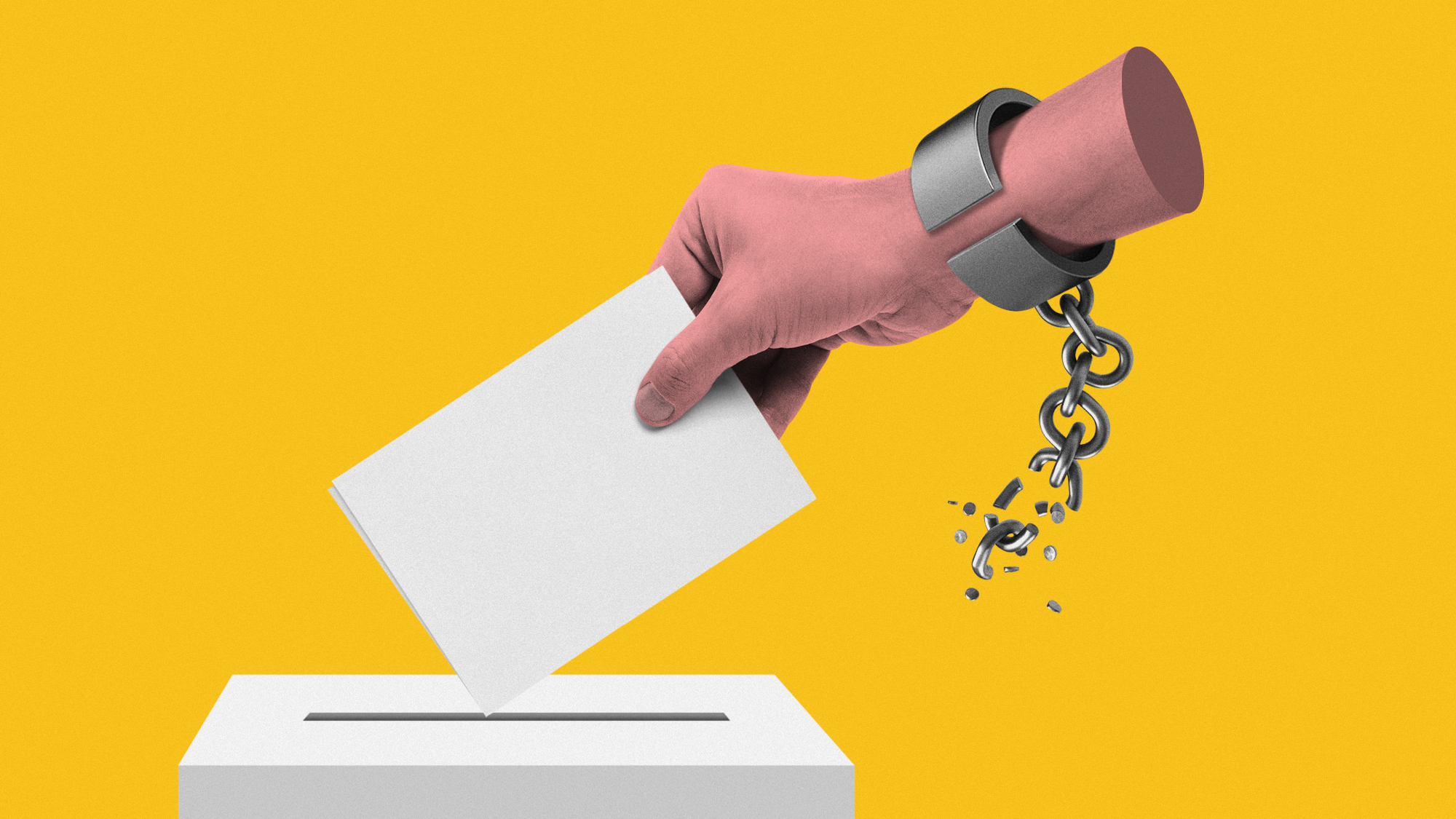How virtual Parliament might work
MPs set to vote on new arrangements including PMQs by video conferencing

A free daily email with the biggest news stories of the day – and the best features from TheWeek.com
You are now subscribed
Your newsletter sign-up was successful
MPs are expected to approve plans for a partly virtual Parliament next week in an effort to adhere to physical distancing measures.
House of Commons speaker Lindsay Hoyle has called on the government to allow a virtual Parliament so MPs can work from home when the current recess ends this week.
Will there be a virtual Parliament?
The Week
Escape your echo chamber. Get the facts behind the news, plus analysis from multiple perspectives.

Sign up for The Week's Free Newsletters
From our morning news briefing to a weekly Good News Newsletter, get the best of The Week delivered directly to your inbox.
From our morning news briefing to a weekly Good News Newsletter, get the best of The Week delivered directly to your inbox.
Details of what a fully or partially virtual Parliament could look like are still being finalised, with plans due to be put to MPs next week.
The House of Commons commission, the cross-party body in charge of Commons administration, will meet on Thursday to look at current plans, with MPs likely to vote on the matter next Thursday.
But some MPs have cast doubt over plans to adapt the Commons to a fully virtual chamber, with concerns over how legislation can be debated and voted on without members physically attending Parliament.
In a letter to the speaker sent last week, Karen Bradley, chair of the Commons procedure committee, said some MPs believed their work in the chamber could not “be replicated by virtual means” and that they should continue to visit their workplace “in the same way as other key workers”.
A free daily email with the biggest news stories of the day – and the best features from TheWeek.com
There are suggestions that MPs could approve a “hybrid Parliament” rather than a fully virtual one, reports The Guardian.
What would a ‘hybrid Parliament’ look like?
“The new procedures are likely to involve many MPs submitting questions to ministers via video conference during departmental questions, statements and urgent questions,” says the Guardian.
One MP privy to the Commons commission’s discussions told the paper: “There will be some members in the chamber, and there will be some members who will be contributing digitally.”
The digital services team in Parliament has put in place technology that will allow sessions in the Commons, such as Prime Minister’s Questions, to take place with MPs submitting questions electronically via video conferencing technology.
“We will have very, very slimmed-down proceedings – with just a skeleton group of ministers and MPs in the house,” said a commission source.
The Institute for Government think-tank has published a paper recommending that parliamentarians “embrace video-links and speaking lists to allow necessary business to continue ‘virtually’ in the chamber and select committees”.
It also advises that proxy voting be allowed, and further “methods for digital voting, as used in other legislatures, are urgently explored”.
–––––––––––––––––––––––––––––––For a round-up of the most important stories from around the world - and a concise, refreshing and balanced take on the week’s news agenda - try The Week magazine. Start your trial subscription today –––––––––––––––––––––––––––––––
How do virtual parliaments work elsewhere?
Westminster is lagging behind other assemblies in terms of technology, with neighbours in Wales, Scotland and Europe better equipped for remote debating and voting.
The Welsh Assembly (the Senedd) has been meeting remotely over Zoom, while the Tynwald, on the Isle of Man, has announced plans to go digital because of coronavirus, says the BBC.
The European Parliament trialled email voting in March, while Spain can use remote voting infrastructure set up before anyone had heard of the new coronavirus.
Further afield in New Zealand, a new select committee has been formed to question ministers remotely during an extended recess as a result of coronavirus.
-
 Political cartoons for February 14
Political cartoons for February 14Cartoons Saturday's political cartoons include a Valentine's grift, Hillary on the hook, and more
-
 Tourangelle-style pork with prunes recipe
Tourangelle-style pork with prunes recipeThe Week Recommends This traditional, rustic dish is a French classic
-
 The Epstein files: glimpses of a deeply disturbing world
The Epstein files: glimpses of a deeply disturbing worldIn the Spotlight Trove of released documents paint a picture of depravity and privilege in which men hold the cards, and women are powerless or peripheral
-
 How corrupt is the UK?
How corrupt is the UK?The Explainer Decline in standards ‘risks becoming a defining feature of our political culture’ as Britain falls to lowest ever score on global index
-
 The Mandelson files: Labour Svengali’s parting gift to Starmer
The Mandelson files: Labour Svengali’s parting gift to StarmerThe Explainer Texts and emails about Mandelson’s appointment as US ambassador could fuel biggest political scandal ‘for a generation’
-
 The high street: Britain’s next political battleground?
The high street: Britain’s next political battleground?In the Spotlight Mass closure of shops and influx of organised crime are fuelling voter anger, and offer an opening for Reform UK
-
 Is a Reform-Tory pact becoming more likely?
Is a Reform-Tory pact becoming more likely?Today’s Big Question Nigel Farage’s party is ahead in the polls but still falls well short of a Commons majority, while Conservatives are still losing MPs to Reform
-
 Taking the low road: why the SNP is still standing strong
Taking the low road: why the SNP is still standing strongTalking Point Party is on track for a fifth consecutive victory in May’s Holyrood election, despite controversies and plummeting support
-
 What difference will the 'historic' UK-Germany treaty make?
What difference will the 'historic' UK-Germany treaty make?Today's Big Question Europe's two biggest economies sign first treaty since WWII, underscoring 'triangle alliance' with France amid growing Russian threat and US distance
-
 Are free votes the best way to change British society?
Are free votes the best way to change British society?Today's Big Question On 'conscience issues' like abortion and assisted dying, MPs are being left to make the most consequential social decisions without guidance
-
 Is the G7 still relevant?
Is the G7 still relevant?Talking Point Donald Trump's early departure cast a shadow over this week's meeting of the world's major democracies